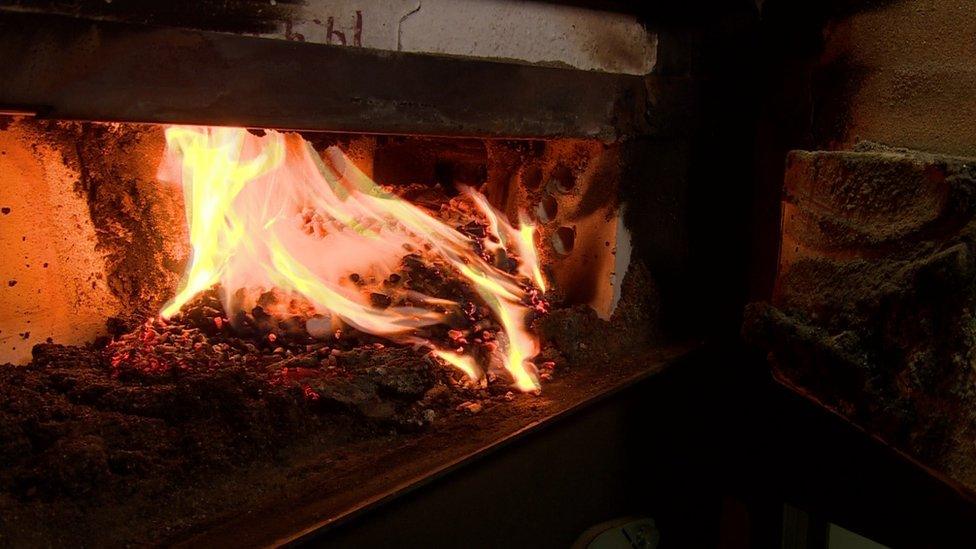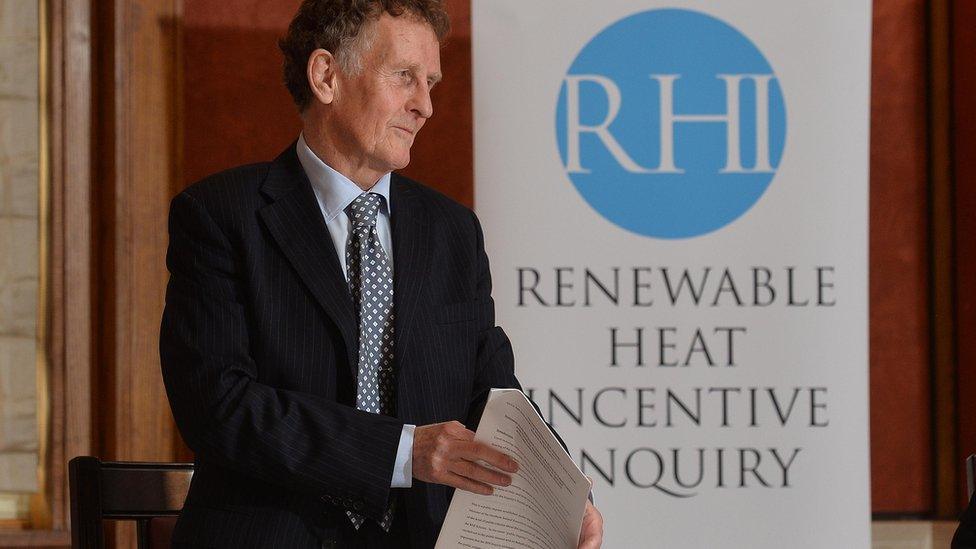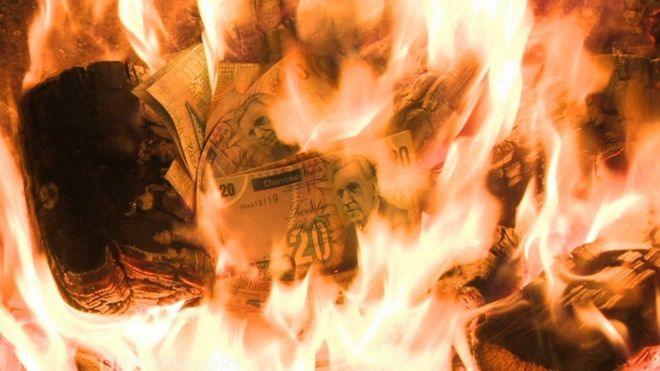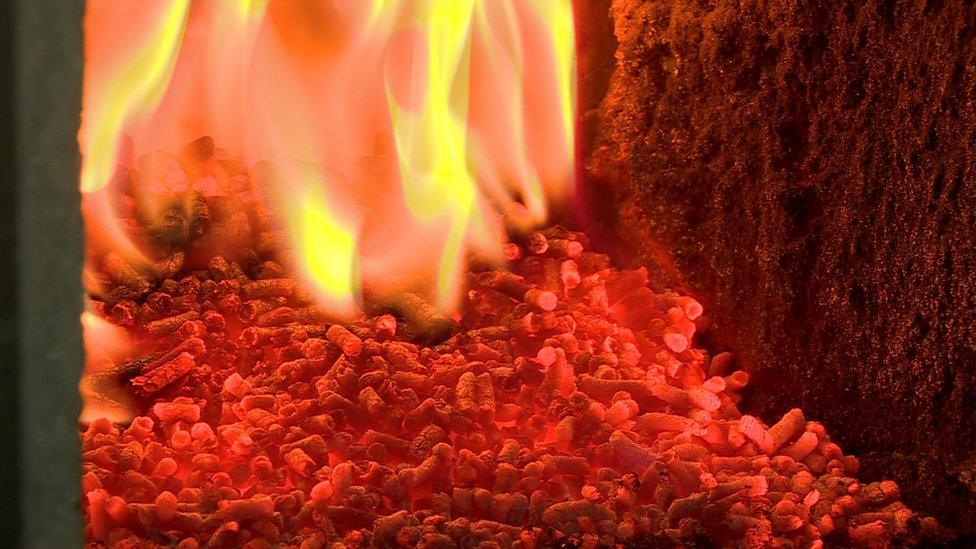RHI Inquiry hears three boilers were 'heating an empty space'
- Published

The RHI scheme was established to encourage uptake of eco-friendly heat systems over the use of fossil fuels
The RHI inquiry has heard a claim that three biomass boilers had been bought for poultry houses that had not, at that point, been built.
In the meantime, the boilers had been approved, commissioned and were heating empty space.
The issue was raised with the energy regulator Ofgem's counter fraud team.
They said as the boilers had already been accredited, they could not require the owner to prove he was generating useful heat.
They also said that just because the shed they were in was empty on the day of inspection, it did not necessarily mean it was empty on other days.
The decision was to close the fraud referral without taking further action.
Edmund Ward of the Office of Gas and Electricity Markets (Ofgem), who was Thursday's witness, said the fraud unit had been told that resources should not prevent them doing targeted audits on the basis of fraud allegations.
But he was unable to tell the inquiry whether an inspection had been carried out in the case.
Panel member Keith MacLean said he found it "incredible" that there was not great sensitivity among auditors about the allegations surrounding poultry businesses and the heating of empty sheds.
The inquiry also heard that Ofgem was not sharing the detail of audits in Northern Ireland with the Enterprise Department.
This was due to a lack of agreement over the sharing of applicants' personal details.
'Primary school approach'
It was 2016 - months after the scheme had been shut to new applicants - before a deal was done on information sharing.
Inquiry chairman, Sir Patrick Coghlin, said it was "bizarre and incomprehensible" that one government agency, employed and paid by another, could not share key data.
He said a "primary school approach" might have been to redact personal details or seek advice from the Information Commissioner about the best way to do it.
Earlier, the public inquiry heard that the level of audits of RHI boilers was insufficient to show what was really happening on the ground.
Just 31 installations were checked in Northern Ireland in the first three years of the scheme out of 2,120 applications.
In Britain, 7.5% of boilers in the scheme were being checked.
In Northern Ireland, even though the intention was to mirror Great Britain, it was just 1.46%.
The Renewable Heat Incentive scheme was established to encourage uptake of eco-friendly heat systems over the use of fossil fuels.
An overgenerous offer of fuel subsidies meant it could cost taxpayers an extra £490m.
Ofgem, which was administering the scheme on behalf of the Enterprise Department, was responsible for organising the audits.

The RHI public inquiry is being chaired by Sir Patrick Coghlin
It has told the inquiry that at the beginning, the reason for the lower level of audits was the relatively slow uptake of the scheme in Northern Ireland.
But by the time the numbers had picked up by late 2014, they were told by departmental officials that there was no additional money for extra audits.
It was 2016 before Ofgem moved to a system that provided a statistically reliable programme of inspections.
- Published7 June 2018

- Published6 June 2018

- Published7 November 2017

- Published13 March 2020
